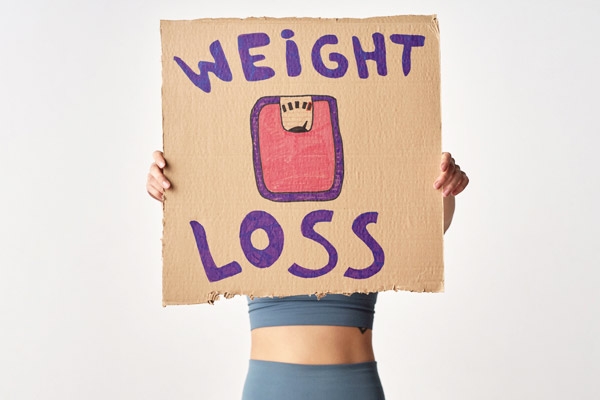
(Image source from: Canva.com)
Often seen as just a matter of personal determination, losing weight is really due to a tricky mix of biological, genetic, environmental, and social elements. Beneath the trendy diets and advice to "eat better" or "exercise more" lies a more complex scientific truth: our bodies resist shedding fat, and disparities in living conditions play a significant role. There are five common misconceptions that need to be unpacked to better grasp what “losing weight” truly involves. The topic of weight loss is always present in public discussions, yet it is often simplified to personal determination. However, after nearly fifteen years of studying health and nutrition, I’ve observed that weight issues are not addressed in the same way as other health concerns. Individuals are often held responsible for their weight, despite significant evidence showing it stems from a complicated mix of genetic, biological, environmental, and socioeconomic influences.
Limited availability of nutritious and affordable food, insufficient chances to exercise—mainly due to a lack of appropriate places to do so, long working hours, and constant stress—much more prevalent in poorer neighborhoods—can severely hinder the ability to maintain a healthy weight. Here are five key points that more people should comprehend about losing weight:
It conflicts with our biology: Since the 1990s, obesity has been marked as a major health issue in England, and many policies have been created to tackle it. Nevertheless, obesity rates have not fallen— in France, in 2020, the rate of excess weight (which includes both overweight and obesity) was 47.3%, with 17% of people being classified as obese. This indicates that the current strategies, which often focus on individual responsibility, are failing. Even when methods for weight loss are successful, the outcomes are frequently not lasting. Research indicates that most people who drop weight eventually regain it, and the likelihood of an obese individual achieving and maintaining a “normal” weight is quite low.
This situation is partly due to how our bodies respond to weight loss, a biological reaction linked to our evolutionary history: they resist change. This phenomenon is known as metabolic adaptation: when we cut back on calories and lose weight, our metabolism changes its energy use, and hormones that increase hunger, such as ghrelin, rise, encouraging us to eat more and recover the lost pounds. This biological reaction was sensible during our hunter-gatherer days, which were marked by cycles of plenty and scarcity. However, in today’s world, where low-cost and highly processed, calorie-dense foods are easy to obtain, these same biological responses actually encourage weight gain and hinder weight loss. If you are struggling to shed pounds or keep them off, it is not a personal failure, but a predictable physiological reaction.
It’s not about willpower: Some individuals find it easier to keep their weight stable, while others face challenges. The variation goes beyond just willpower. Many factors decide body weight. Genetics is a significant factor by affecting how fast we burn calories, how hungry we feel, and how satisfied we are after meals. Some people may have genes that make them feel hungrier or push them to crave high-calorie foods, making weight loss harder. The environment and social aspects also matter. If people have enough time and money for making nutritious meals, exercising regularly, and getting good sleep, it helps greatly. But not everyone has access to these things.
Overlooking these complicated factors and thinking of weight strictly as a willpower issue creates stigma. This stigma can cause individuals to feel judged, embarrassed, or isolated, which, in turn, raises stress, harms self-confidence, and makes it even tougher to form healthy habits.
Calories aren’t the whole picture: Counting calories is often the go-to method for losing weight. Although creating a calorie deficit is generally necessary for weight loss, it's more complex in real life.
To begin with, nutritional details on foods are just estimates, and our energy needs can change daily. Moreover, how much energy we get from food can differ, depending on how it is cooked, digested, and the makeup of our gut bacteria. There is also a common belief that “a calorie is a calorie,” but our bodies handle calories differently. For instance, a cookie and a boiled egg may have the same caloric content, yet they affect our hunger, digestion, and energy in very different ways. A cookie might lead to a quick rise in blood sugar, followed by a sudden drop, while an egg offers a longer feeling of fullness and provides more nutritional benefits.
These misunderstandings have led to the rise of trendy diets, like those based on protein shakes or those that cut out entire food groups. While these diets might help lose weight quickly by creating a calorie deficit, they are usually not sustainable and frequently lack important nutrients. A better approach is to make lasting changes: focus on consuming more whole foods, reducing takeout, cutting down on alcohol, and adopting habits that enhance overall health.
Exercise is beneficial for your well-being, but it isn't always effective for shedding pounds: A lot of individuals think that exercising more leads to greater weight loss. However, research reveals that this situation is more complicated. Our bodies excel at saving energy. After a vigorous workout, we might unintentionally move less for the remainder of the day or feel hungrier, leading us to consume more food, which offsets the calories we burned.
In fact, studies indicate that the overall energy we use daily doesn’t significantly rise with more physical activity. Instead, the body adjusts by becoming more efficient, cutting down on energy use in other areas, which makes losing weight solely through exercise tougher than many think. Nonetheless, working out provides numerous advantages: it enhances heart health, boosts mental health, preserves muscle, increases metabolism, strengthens bones, and lowers the chance of chronic illnesses. Even if your weight doesn’t decrease, staying active is still one of the best ways to improve our health and enhance our lives.
Becoming healthier doesn’t always require losing weight: You can be healthier without shedding pounds. While losing weight on purpose can lower the chances of health issues like heart disease and certain types of cancer, research also shows that improving your diet and being more active can greatly boost health markers—such as cholesterol levels, blood pressure, blood sugar, and insulin sensitivity—even if your weight remains unchanged. If your weight doesn’t show a major alteration, it might be wise to consider a different strategy. Instead of concentrating on a specific number, you can opt for a more comprehensive approach: a balanced diet, regular enjoyable exercise, prioritizing good sleep, and managing stress effectively. Weight is just a small part of the bigger picture, and health involves much more than that.



















